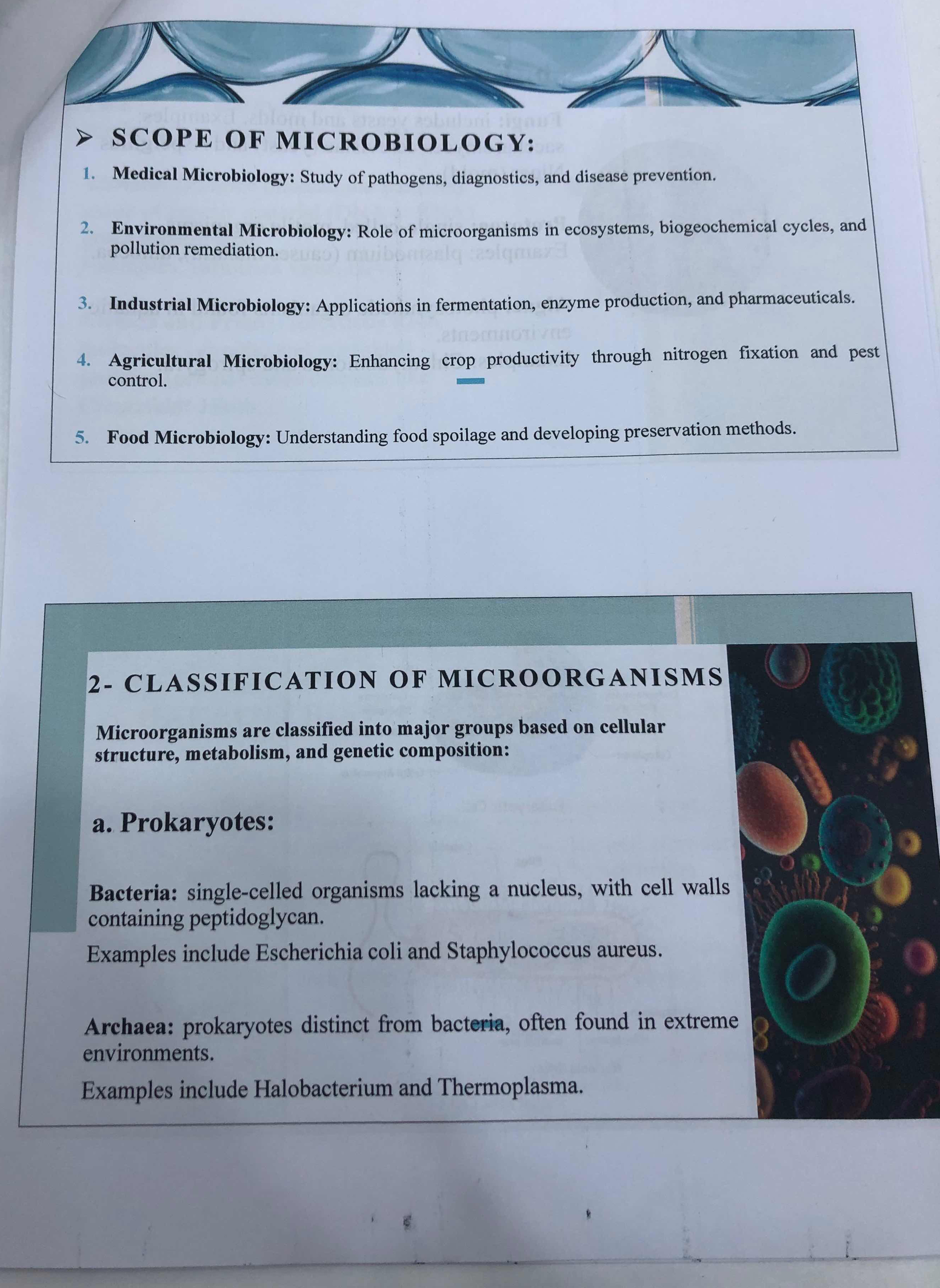What are the main scopes of microbiology and how are microorganisms classified?

Understand the Problem
The text outlines the scope of microbiology, covering areas such as medical, environmental, industrial, agricultural, and food microbiology. It further classifies microorganisms into prokaryotes and details bacteria and archaea, including their characteristics and examples. The question is likely asking for information related to these topics.
Answer
Scopes: medical, environmental, industrial, agricultural, food. Classification: prokaryotes, eukaryotes.
The main scopes of microbiology include medical, environmental, industrial, agricultural, and food microbiology. Microorganisms are classified into prokaryotes (bacteria and archaea) and eukaryotes based on cellular structure, metabolism, and genetic composition.
Answer for screen readers
The main scopes of microbiology include medical, environmental, industrial, agricultural, and food microbiology. Microorganisms are classified into prokaryotes (bacteria and archaea) and eukaryotes based on cellular structure, metabolism, and genetic composition.
More Information
Microbiology covers various fields, each specializing in different aspects of microorganisms and their impact on health, environment, and industries. Classification helps in systematic study and application.
Sources
- Types of Microorganisms - courses.lumenlearning.com
- Microbiology: Definition, Branches, Scope and Types of Microbes - jagranjosh.com
- Classification, identification and typing of micro-organisms - pmc.ncbi.nlm.nih.gov
AI-generated content may contain errors. Please verify critical information